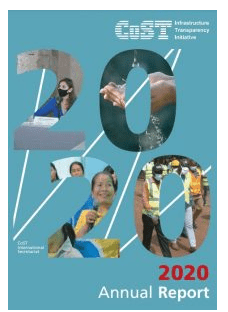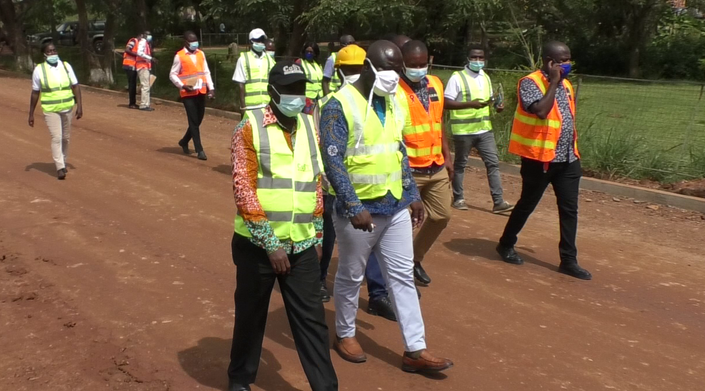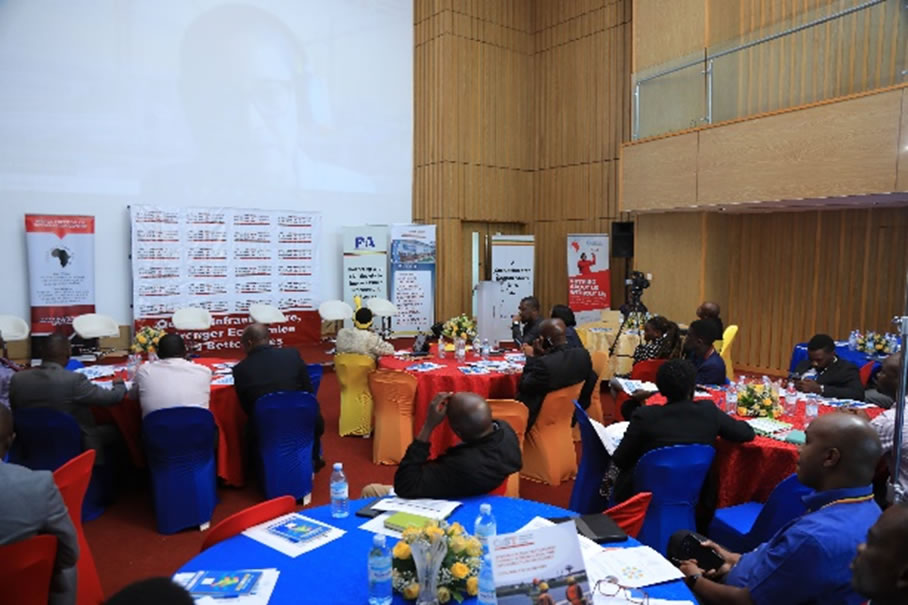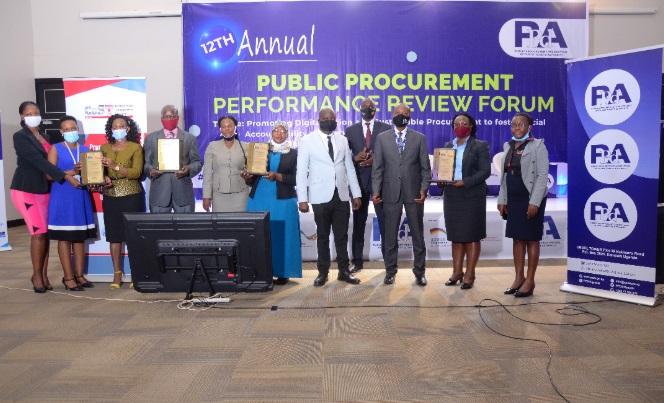
Credits to CoST International Secretariat.
Last year was one in which the flexibility of the CoST approach was put to the test amidst the shifting political and social realities of Covid-19. With in-person meetings restricted, CoST members across 19 countries were forced to think creatively about how best to increase transparency, participation and accountability in infrastructure. As our Annual Report 2020 shows, programmes adapted their approach to continue engaging thousands through digital events and advocating for greater transparency in the face of fast paced public-procurement.

Turning the spotlight on social infrastructure
As healthcare facilities were hastily procured and constructed over the year, our members recognised the need to adapt CoST assurance processes to this otherwise opaque area of public expenditure. In Honduras, the CoST team was called upon by President Juan Orlando Hernández to monitor not only the construction of Covid-related healthcare facilities, but also 83 reconstruction projects built in the wake of hurricanes Eta and Iota. In Afghanistan and Guatemala, water and sanitation projects came under the spotlight – an area that is particularly important for both countries, given their vulnerability to climate change and drought.
Increasing business integrity
Credits to CoST International Secretariat.
Last year was one in which the flexibility of the CoST approach was put to the test amidst the shifting political and social realities of Covid-19. With in-person meetings restricted, CoST members across 19 countries were forced to think creatively about how best to increase transparency, participation and accountability in infrastructure. As our Annual Report 2020 shows, programmes adapted their approach to continue engaging thousands through digital events and advocating for greater transparency in the face of fast paced public-procurement.

Turning the spotlight on social infrastructure
As healthcare facilities were hastily procured and constructed over the year, our members recognised the need to adapt CoST assurance processes to this otherwise opaque area of public expenditure. In Honduras, the CoST team was called upon by President Juan Orlando Hernández to monitor not only the construction of Covid-related healthcare facilities, but also 83 reconstruction projects built in the wake of hurricanes Eta and Iota. In Afghanistan and Guatemala, water and sanitation projects came under the spotlight – an area that is particularly important for both countries, given their vulnerability to climate change and drought.
Increasing business integrity
Despite the restrictions imposed by Covid-19, CoST members used innovative methods to train over 2300 government, civil society and private sector stakeholders on disclosing and using infrastructure data. This includes 577 members of the private sector, who benefited from enhanced knowledge of national procurement processes to gain access to more bidding opportunities. In Uganda, efforts to increase engagement between public and private sector actors helped to increase trust and participation in the procurement system, leading to an increase in the number of bids per tender from 1.6 in 2019 to 12.5 in 2020.
Institutionalising transparency
The work of CoST programmes to engage procuring entities and institutionalise cultures of transparency has given rise to ever increasing levels of data disclosure. By the end of 2020, 19,950 projects were disclosed in line with the Infrastructure Data Standard (CoST IDS), a 56% rise on the year before. This is testament to the long-term, hard-won advocacy efforts taken by CoST members which is now giving rise to increasingly embedded attitudes to disclosure and transparency.
What’s ahead in 2021: developing technical capacity
Given the issues which arose from the procurement of the Covid-19 response, there has never been a greater need for disclosure and oversight within these processes. As we look to 2021, the uptake of the Open Contracting for Infrastructure Data Standard (OC4IDS) and Infrastructure Transparency Index will only increase the value of the data disclosed and enable stakeholders to better monitor how and where tax-payer’s money is being spent.
Find out more about these and other achievements in our Annual Report 2020.
Institutionalising transparency
The work of CoST programmes to engage procuring entities and institutionalise cultures of transparency has given rise to ever increasing levels of data disclosure. By the end of 2020, 19,950 projects were disclosed in line with the Infrastructure Data Standard (CoST IDS), a 56% rise on the year before. This is testament to the long-term, hard-won advocacy efforts taken by CoST members which is now giving rise to increasingly embedded attitudes to disclosure and transparency.
What’s ahead in 2021: developing technical capacity
Given the issues which arose from the procurement of the Covid-19 response, there has never been a greater need for disclosure and oversight within these processes. As we look to 2021, the uptake of the Open Contracting for Infrastructure Data Standard (OC4IDS) and Infrastructure Transparency Index will only increase the value of the data disclosed and enable stakeholders to better monitor how and where tax-payer’s money is being spent.
Find out more about these and other achievements in our Annual Report 2020.



